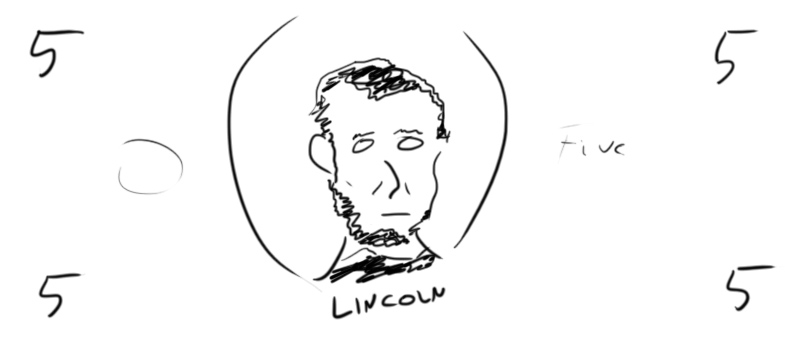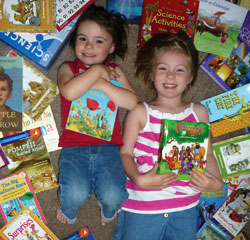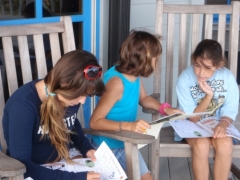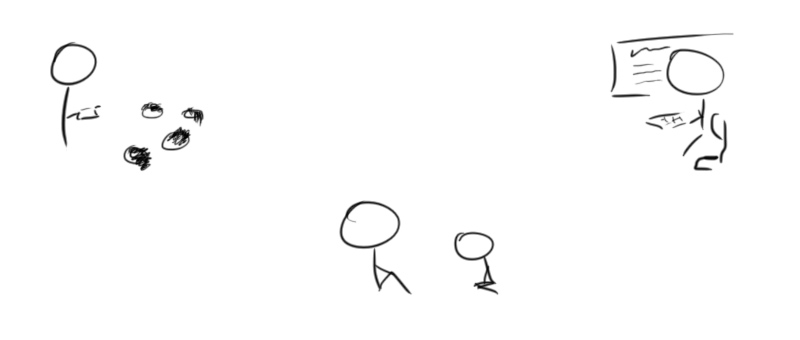I think we've been drinking the metaphorical Kool-Aid. We've found statistics that back our decision to homeschool. We listen to people tell us how great homeschooling is. And we've grown complacent in our self-back-patting.
A trend I'm noticing -- or, at least, believe I'm seeing -- is some in our generation of homeschoolers believe the hype that abandoning the school system automatically makes for a better education. Stats disagree. But the thinking remains: I can just pick up whatever program strikes my fancy and my kids will turn out great!
No. Not true. Homeschooling does not magically make students succeed any more than simply showing up to class. The factor that predicts student success is your involvement in your student's education. And with all the "free," online, "easy" educational options available to us as homeschoolers, I'm concerned that we will leave our kids to "learn on their own."
That is a recipe for failure.

Drink Up
If you read Wired, you may have seen the cover story: How a Radical New Teaching Method Could Unleash a Generation of Geniuses. The gist is that these teachers let the kids loose and stopped lecturing, allowing the kids to discover for themselves what they needed to learn. The kids rocked, scoring higher than anyone else in the country!
Okay, Luke, does that mean you think we should just avoid lectures and "old" models of learning? Are you pushing for something like unschooling?
Nope.
As I read the article, the theme that resonated through the text again and again was this: These teachers (and their students) succeeded because they introduced ideas and discussed them with the kids. The teachers let the students follow through on the concepts. Instead of telling them what was what, they let the students discover it. But behind all of that, the teacher was directing what needed to be discovered.
At Sonlight, we call this "education, not indoctrination." And it's huge.
So, while schools and other educators may find this approach to teaching "radical" and "new," we Sonlighters have been using it for close to a quarter century.
But Sonlight takes so much time, Luke! There's so much reading! I have to carve out hours of my day to educate my kids! These new homeschool programs do the teaching for me. I can be busy doing other stuff while other people -- via technology -- teach my kids. Why would I waste my time reading to my students?
1. Because your involvement matters. Without your input, your students would not do as well (see above). By taking the time to read and discuss with your kids, you are setting them up for success.
2. Because direction from a teacher matters. I know Sugata Mitra disagrees. And he's a much bigger name in education than me. I agree that kids learn stuff naturally. I agree that kids teach each other stuff. I agree that curiosity is huge and kindling a natural desire to learn is wonderful. I think he is right on with all of that. But the part that I believe he's missing is the value of a literature-based education. Sure, you can pick up skills and knowledge simply by poking around the internet. But literature does so much more. By giving your students great literature and helping them follow through, they're going to come away with a fantastic education.
3. Because you'll build relationships. Academic success is one thing. Family bonds is something else entirely. Spending time with your kids gives you opportunities to connect with them. Plain and simple.
4. Because your kids will love learning. A life-long love of learning is way more useful than ingesting a few -- or even many -- facts and figures. As my mom says often, if you teach kids how to learn, and give them a desire to do so, they will have no barriers in life. Your students can go on to do whatever God has called them to do.
5. Because you'll love teaching. Not always. I know what it's like to read for a couple hours and feel worn out. But then again, I know what it's like to read until my voice has gone hoarse because I want to read the next chapter and the kids are begging me to keep going. That is so much fun! And the discussions and connections just make it even more enjoyable.
This only scratches the surface. If you want to read more about why books are a fantastic way to learn, check out a few of the following posts:
On Lectures and Learning
How Reading Fiction Helps Kids Develop Empathy
Four Benefits of Literature-Rich Learning
What Is the Future of Learning?
How Sonlight's curriculum helps you talk with your children about racism
A Public School Success Story: The 1,000 Books Project
Books Inspire Thought
Teaching children how to fail
The Most Memorable Part of School: Stories
Go Somewhere You've Never Been (and may never visit)
Want to boost emotional intelligence? Read literature.
Which uses richer vocabulary: children's books or adult conversation? How we learn new words.
Why do you take the time to read to your kids? What made you decide Sonlight was worth it over all the "free" and "easy" options out there?
~Luke Holzmann
Filmmaker, Writer, Guardian











